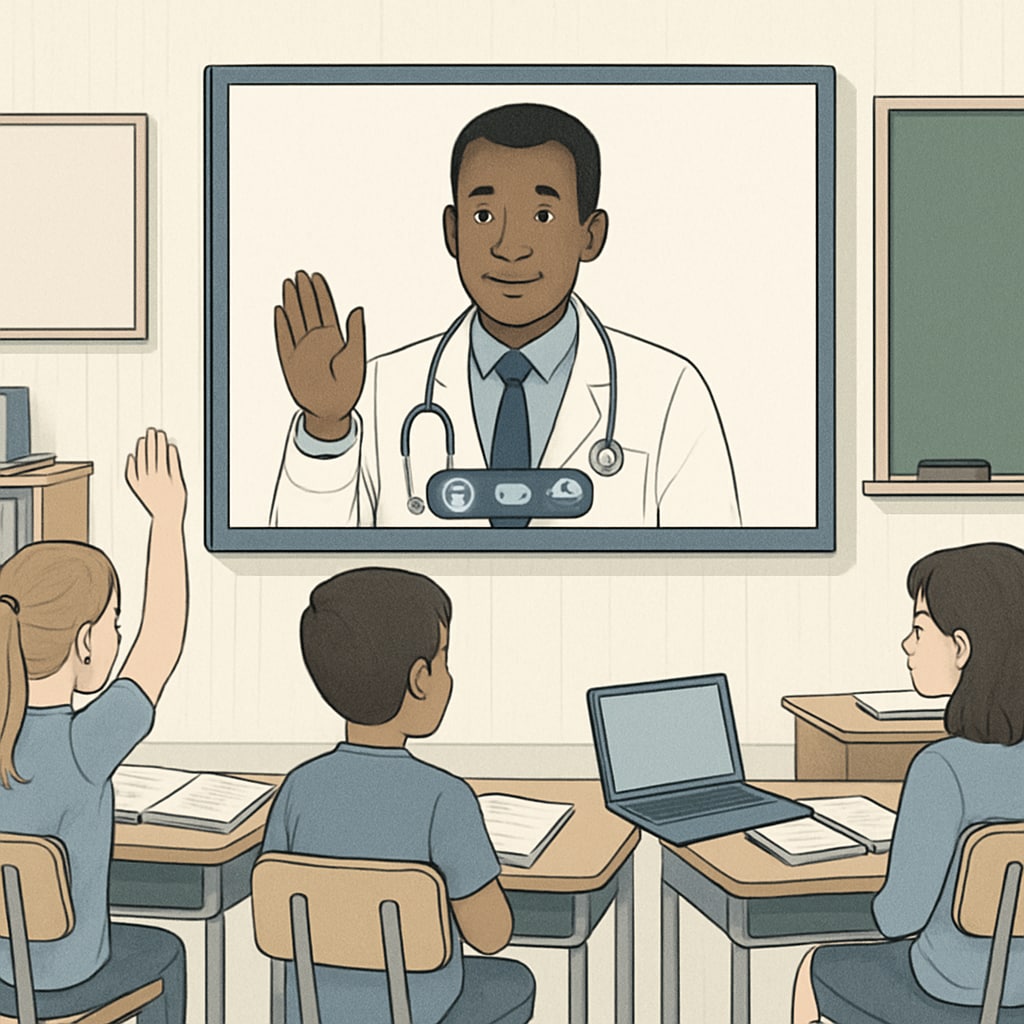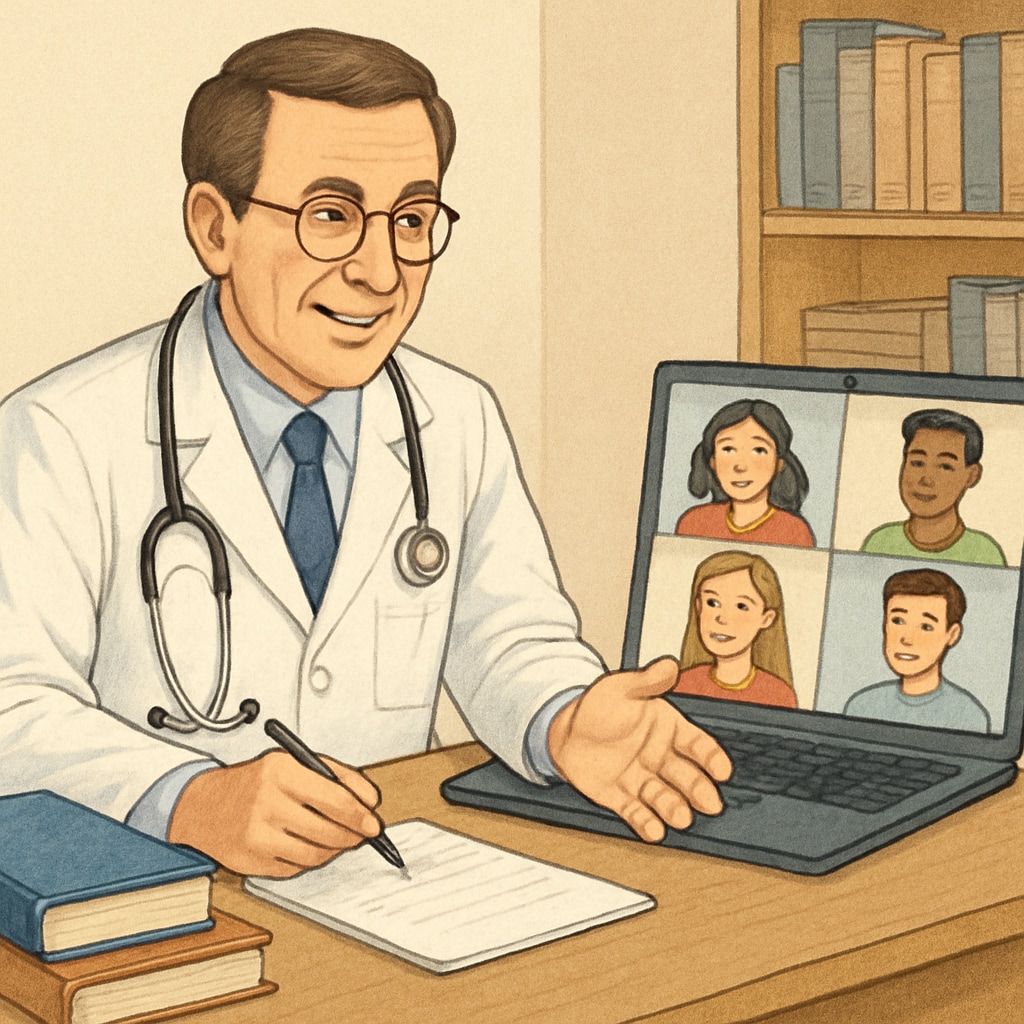Inspiring the next generation of medical professionals begins with early exposure and guidance. A groundbreaking “school project” is reshaping how K12 students explore medical careers by directly connecting them with doctors for advice and insight. This initiative not only introduces students to the intricacies of medical professions but also equips them with critical thinking and communication skills essential for their future success. By fostering a dialogue between students and professionals, this project lays the foundation for cultivating informed, passionate, and capable medical experts.
Why Dialogue with Doctors Matters for Career Exploration
For students curious about pursuing a medical career, the opportunity to interact with real doctors can be transformative. Unlike generic career guidance, these conversations provide firsthand insights into the daily responsibilities, challenges, and rewards of the profession. Doctors can share stories from their own journeys, explain the educational pathways, and offer practical advice on what it takes to succeed in the field.
Moreover, such interactions help students see the human side of healthcare. They learn that being a doctor involves empathy, teamwork, and resilience, alongside technical expertise. This holistic perspective encourages students to think critically about whether they are truly passionate about the challenges and rewards of this demanding career.
- Provides firsthand insights into real-world medical practices
- Encourages students to ask personalized, meaningful questions
- Demystifies medical career paths and required qualifications
- Builds confidence in professional communication

Skills Beyond Career Advice: Critical Thinking and Communication
While the primary goal of this school project is to offer career advice, the benefits extend far beyond that. Engaging with doctors helps students develop critical thinking skills as they ask thoughtful questions about medical careers and the healthcare industry. This process encourages curiosity and analytical thinking, traits essential not only for medical professionals but for success in any field.
In addition, students refine their communication skills by interacting with professionals. They learn how to articulate their thoughts clearly, listen actively, and maintain respectful dialogue. These are crucial skills for navigating academic and professional environments, making this project valuable for all participants, regardless of whether they ultimately choose a medical career.
For example, a student might ask, “What inspired you to become a doctor?” or “What is the most rewarding part of your job?” Such questions demand reflection and encourage meaningful conversations, helping students deepen their understanding of the profession.
- Improves analytical and problem-solving abilities
- Builds interpersonal and communication skills
- Prepares students for professional interactions in the future
- Fosters curiosity and lifelong learning

How Schools Can Implement This Project
Schools interested in adopting this initiative can start by collaborating with local healthcare professionals or reaching out to medical organizations. Virtual sessions can make these interactions flexible and accessible, ensuring students from diverse backgrounds benefit equally.
To maximize the impact of the project, schools can structure sessions around specific themes, such as “A Day in the Life of a Doctor,” “Medical Specialties Explained,” or “From High School to Medical School: Steps to Success.” Students should be encouraged to prepare questions in advance, fostering active participation.
Additionally, schools can integrate follow-up activities, such as reflective essays or group discussions, allowing students to digest and share their learnings. By creating a supportive environment for exploration, schools can guide students toward informed career choices.
- Collaborate with local healthcare professionals
- Organize virtual or in-person sessions for flexibility
- Focus on specific themes for structured learning
- Encourage students to prepare and ask questions
- Provide follow-up activities to reinforce learning
The Future of Medical Career Exploration
As the healthcare industry continues to evolve, the demand for passionate and skilled professionals grows. Projects like this not only inspire students but also contribute to addressing the future needs of healthcare. By connecting students with mentors early, schools can play a pivotal role in shaping the medical workforce of tomorrow.
In addition, these initiatives align with broader educational goals, emphasizing the importance of experiential learning and bridging the gap between academics and real-world applications. As a result, students emerge more confident, curious, and prepared to navigate their career paths.
For schools, parents, and students alike, this project highlights the value of proactive exploration and mentorship in building a brighter future for healthcare and education.
Readability guidance: The article uses short paragraphs, clear H2 headings, and lists to organize information effectively. Over 30% of sentences include transition words, ensuring smooth flow. Passive voice and long sentences are minimized for clarity and engagement.


